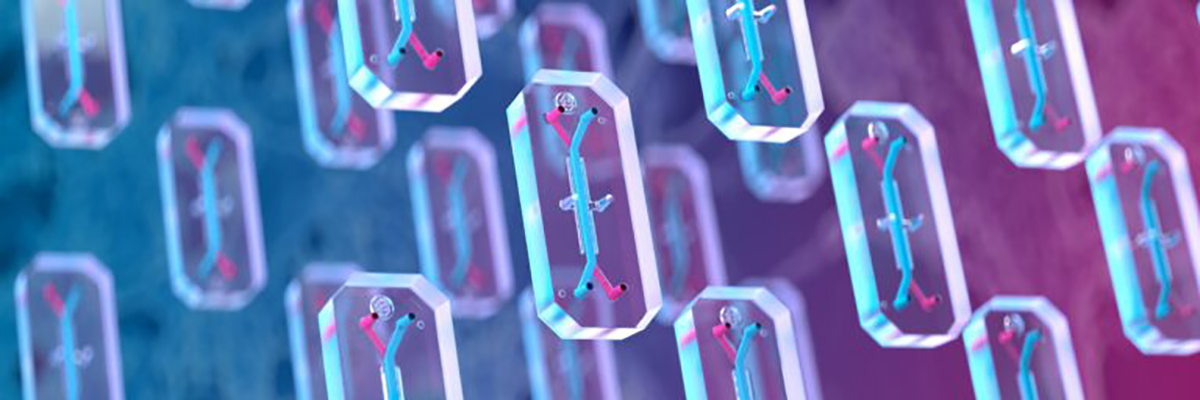In the field of life sciences, organ chips have become a highly anticipated research hotspot. This technology utilizes microfluidic technology and biomaterials to simulate the structure and function of human organs or organ systems, providing unprecedented tools for drug development, toxicology research, disease modeling, and other fields. This article will delve into the development history, technical principles, and application prospects of organ chips, and look forward to the future development of this technology.
1、The rise and development of organ chips
The research on organ chips can be traced back to the late 20th century, when scientists began attempting to construct simple tissue models for drug screening. With the development of microfluidic technology, organ chips have gradually become an independent research field. In 2010, Professor Donald E. Ingber, founding director of the Wyss Institute at Harvard University, developed the world's first successful organ chip: the lung chip. Subsequently, Emulate was established to commercialize and promote the technology.
The core technology of organ chips is microfluidics and biomaterials. Microfluidic technology utilizes microchannels and fluid flow control to precisely regulate the environmental conditions of cell growth. The selection of biomaterials is crucial for the biomimetics and cell viability of organ chips. At present, the commonly used biomaterials include polymers, hydrogels, etc.
2、The application value of organ chips
1. Drug development and toxicity testing: Organ chips can simulate the physiological environment of human organs for drug screening and toxicity testing. By testing drugs on organ chips, the efficacy and safety of drugs can be more accurately predicted, thereby accelerating the drug development process and reducing the use of experimental animals. This helps to improve the efficiency and success rate of drug development, providing patients with better treatment options.
2. Personalized healthcare: Organ chips can provide individuals with customized drugs and treatment methods. By simulating the physiological characteristics and genetic background of individuals, organ chips can be used to evaluate differences in drug responses and achieve the goal of precision medicine. This helps to improve treatment effectiveness and patient survival, while reducing unnecessary medical expenses.

3. Disease modeling and research: Organ chips can be used to establish in vitro models of diseases, such as heart disease, liver disease, lung disease, etc. By simulating the structure and function of organs under disease conditions, researchers can better understand the pathogenesis of diseases and provide new ideas and strategies for disease treatment. This helps to promote the continuous improvement of medical research and treatment levels.
4. Biotechnology and regenerative medicine: Organ chips can be used in the field of biotechnology, such as tissue engineering and regenerative medicine. By constructing tissues or organs with specific functions, organ chips are expected to provide new solutions for the regeneration of damaged or diseased organs. This helps to promote the development of biotechnology and regenerative medicine, improve human health and quality of life.
5. Interdisciplinary applications: In addition to applications in the field of life sciences, organ chips can also be extended to other interdisciplinary applications. For example, in the field of environmental science, organ chips can be used to evaluate the harm of pollutants to the human body; In the field of food science, organ chips can be used to detect harmful substances in food. This provides new tools and means for interdisciplinary research and application.
3、Future prospects and challenges
Although organ chips have broad application prospects, they are still in the development stage and still face some challenges and limitations. How to simulate the interaction between multiple organs and more comprehensively reflect the complex physiological mechanisms of the human body is also a future research direction. The manufacturing process and standardization level of organ chips still need to be improved. The organ chip platforms developed by different laboratories may vary, which can affect the comparability and reproducibility of experimental results. Therefore, promoting the standardization and industrialization process of organ chips is crucial. Finally, ethical and legal issues cannot be ignored. For example, using human cells and tissues for organ chip research involves ethical review and informed consent issues. In addition, how to protect patient privacy and data security is also a concern.
Overall, organ chips, as an emerging technology platform, have enormous potential and application prospects in the field of life sciences. Through continuous technological innovation and improvement, the open and flexible organ chip platform provided by Emulate Bio has been applied in many biological fields, such as development or disease model construction, drug development, immune response therapy, microbial infection, etc. I believe that with the efforts of researchers and the development of new manufacturing technologies, organ chips can achieve more effective and realistic drug efficacy and toxicity testing, and can also be used for personalized treatment.
* The above content is collected online for reference only. If the article on this website involves copyright or other issues, please contact us in a timely manner and we will handle it as soon as possible!